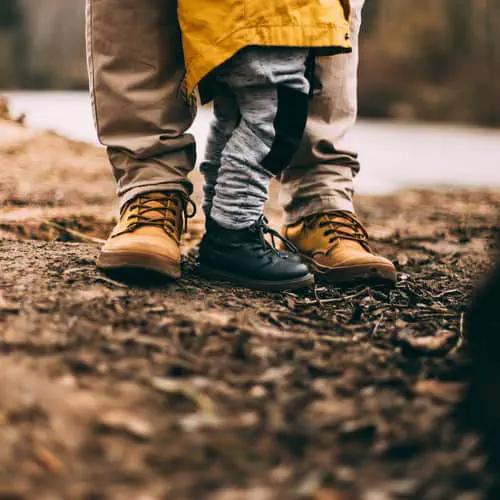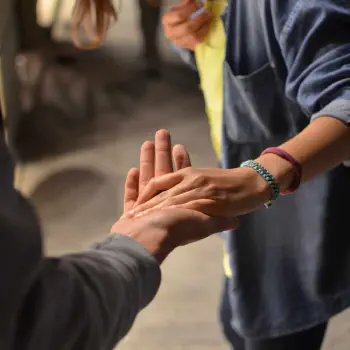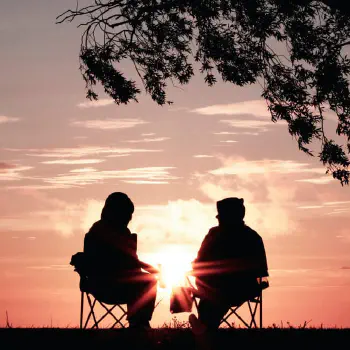Before you start reading this, I want you to take a pen and paper and answer this - What does ‘home’ mean to you? Hold on to this question because this will remain the central point of this post.
Like most people of my generation, I have spent a significant part of the last decade and some formative years of my adulthood, moving across cities. When one moves as much, one is bound to ponder over the meaning of home; and mulling over these questions while leading me to unpack a lot of things that go into making of a home and family, eventually became my first book.
Humans are social animals and the first social unit that an individual forms is the family, whether one is born into it or grows around. The family becomes the first social contract that one enters into. Perhaps, this is why family remains an epicentre for an individual throughout their personal journey. That combined with the fact that one’s parents or one’s primary caregivers leave an indelible mark on the sense of self worth and emotional makeup, inspired me to look into searching for the meaning of home and family.
The reason I asked you to write about the meaning of home at the start of this post was rooted in the fact that each one of us, growing up in the set of social conditions informing our identities, have understood families, parents and homes in a certain (ideal) way. This benchmark of the family often occurs by way of attaching set roles to each member of the family, and attaching set emotions to the space called home. This is why when we speak of home, emotionally, one may often tend to find a flash of an image from one’s childhood or that of a cherished memory.
Often, as we grow up into adults with this set of emotional perceptions, we carry these with us. While that may not be necessarily a bad thing but, a question to be asked then is, in carrying these set notions of family and home, what is the emotion that we are trying to carry and hopefully, replicate?
The emotion is that of feeling safe.
Now that you know this, go back to your note on the meaning of home. Does it resonate with an element of emotional safety? If you identify it as comfort then that too, is emotional safety.
In my last post for TheMindClan.com, I had written about emotional abuse and how to identify it. Now, since as humans we tend to carry the definitions that we learnt of the family and the feeling of safety with us into adulthood, imagine what it would be like if this memoriam of safety was in fact not safe? What if the home one was aware of as being safe, was not really emotionally, or even physically safe? Also remember, carrying these definitions are part of the human experience since they set the foundation for the emotional structure that we build our lives on. That said however, the emotional structure of our lives remains dynamic and ever-evolving.
Coming back to the idea of emotional abuse and the family, does the idea of emotionally unsafe homes sound unreal?
It isn’t. Emotionally and physically unsafe homes are far too many, across all the strata of society, than we are culturally willing to accept and talk about.
That begs the question: what do we specifically talk about when we talk about family in the popular discourse? What is this ideal that we all carry with us about family and roles of individuals within the family? More importantly, how does the ideal deviate from the reality? Of course, these differences in perception of the ideal family and the reality of one’s experience as a family will vary from person to person. But what is of importance here is that the popular and imagined narrative of the family and that of home which alludes to the feeling of emotional safety in a physical and social space, has little to no space for experiences that do not resonate with the ideal, making up a majority of these experiences existing in their own bubbles of isolation and dissatisfaction.
Some of the questions that kept me driven to get to the bottom of this were as follows:
- Is home a physical structure and material things that one has carried through time, marking milestones of a life lived and perhaps, shared? Is home the idea of reveling in nostalgia, spinning stories and reminiscing about past days of innocence when everything seemed easy, and not as disappointing as it seems in adulthood? Or, is it a shrine of remembrance of that version of you, that was uninhibited and safe?
- If family or selfless, unconditional love defines home and the individual identity, then where does the unconditionality go when the child becomes a person of her own right?
- If family is the beginning and end of every social tie that an individual has, then why do we avoid talking about the hurts and disappointments meted out to us by those closest to us in the name of tradition or custom?
- If tradition is what defines familial ties, then is it really the imagined ideal of home with them? If tradition or custom defines the way we treat each other, then why do we expect selflessness from others who we ended up raising or being raised by?
How is it relevant for mental health?
This is where the original understanding of the family being one’s first social unit and impacting in shaping one’s emotional architecture comes in. Now that we know about the traditional ideal of a family and the roles that we perceive based on our conditioning, and the fact that the reality is more often than not, different from the ideal, it is fair to say that witnessing this deviation of the reality from the imagined version of the family, remains a great cause of mental and emotional distress for a significant number of people. The degree of distress may vary but, it remains an essential part of stresses that one carries well into late adulthood, often leaving it on the backburner because to change the definition of the cocoon of childhood emotional safety in one’s mind is indeed a challenging and humongous task. This is why understanding the popular notion of the family, the perceived ideal of the family and one’s own reality of the family is crucial for one’s mental health. Also, why more often than not, mental health professionals take you back into your childhood and patterns learnt then, in order to create ease in your present.
How do we look at it with respect to emotional abuse?
Emotionally abusive families in the shape of a generally abusive environment or abusive parents is one of the more extreme forms of deviations from the ideal family. Since we remain stuck in the imagined ideal, there is far less conclusive statement of facts in the shape of solid data to share the extent of emotional abuse within the society. Conversations about it emerge only in private discussions, often held by individuals as a matter of their personal shame (since family equals honour in perception) and hence, a cause of silent suffering.
Please note, I am in no way claiming that everything is bad with the idea of family. Instead what I hope you take away from this is an acceptance of the humanity of each individual making up the family. I hope you take away the understanding that with so many rapid changes in the way we exist today as individuals behind closed doors and in relation to the world around us, there is an urgent need to reconfigure the way we understand and practice being family members or creating families (whether by blood or just by bonds of friendship) in order to ensure that with more ways to connect virtually, we do not remain disconnected from each other.
It is only when we are able to do that, will we be able to accept the reality of emotional abuse as a common element of the way we traditionally perceive family, and hopefully, help each other out of the same. It is the same reason why in my book too, I do not just talk about surviving emotionally abusive parenting but, I also allude to the ‘abusive’ parents too being a part of a system that may be emotionally abusive for them as individuals.
I close this essay leaving you with a belief I have found within me to help me when the obligation of family weighed on my shoulders - we are all products of a social conditioning that defines family as a unit deserving of absolute devotion. Yet we are also products of a conditioning that upholds certain principles and beliefs that can often be unfair, and even demeaning to one another. It is a shared reality and I believe it is in the acknowledgement of this shared reality of the oddities and hypocrisies of the imagination that makes the Indian family, that we can find some comfort, maybe even a home.




















